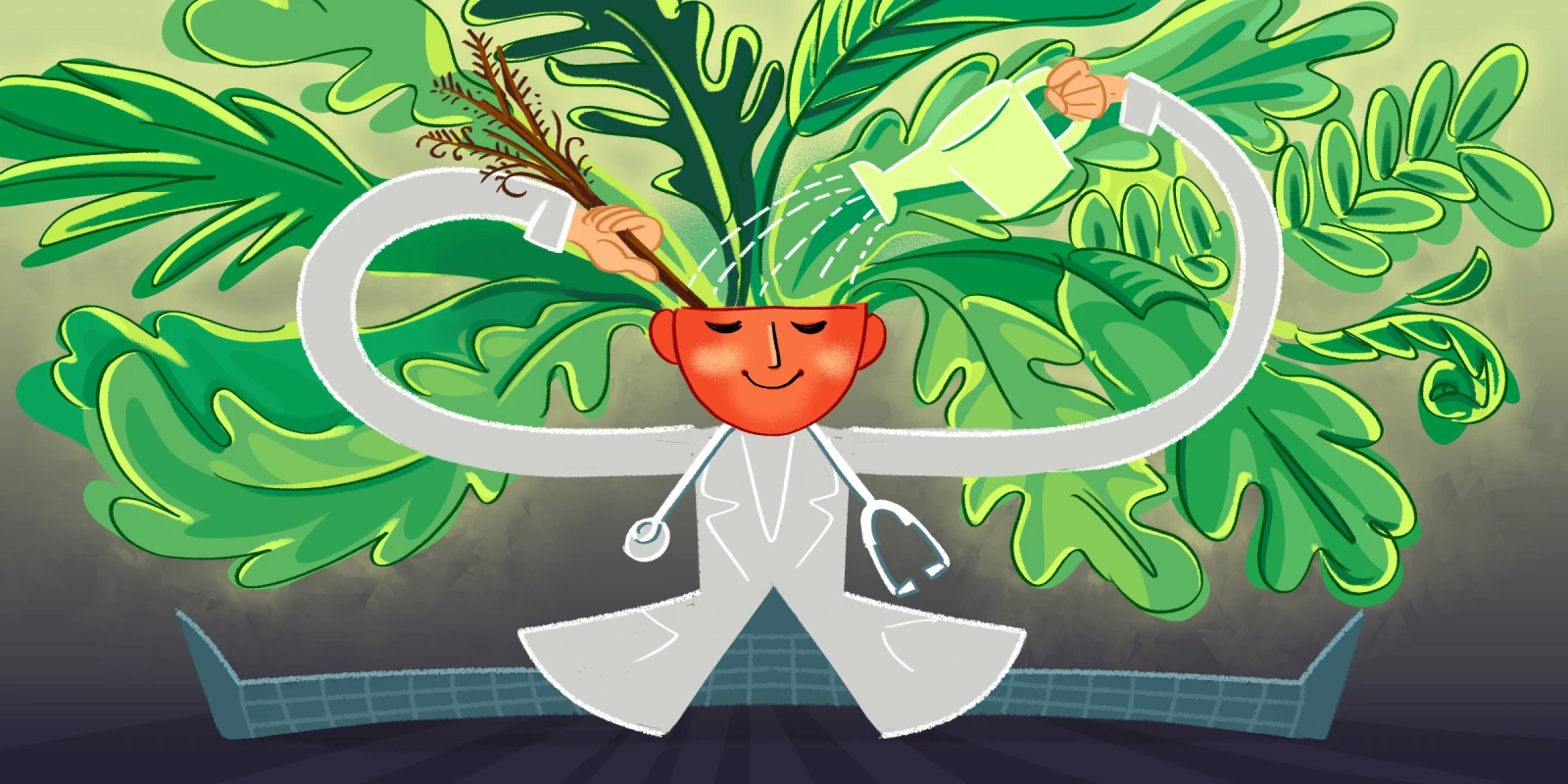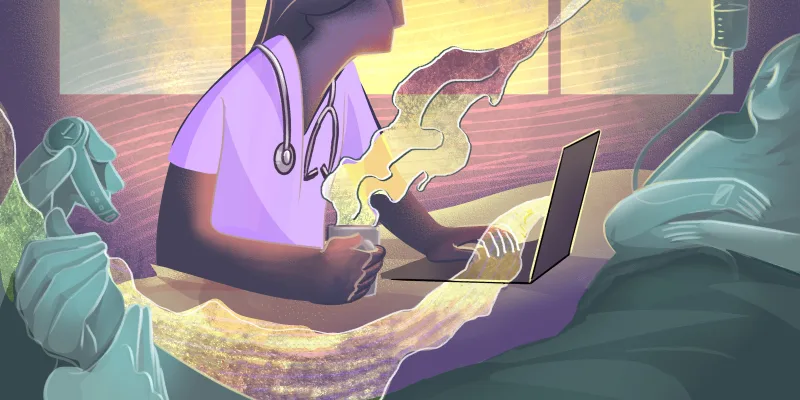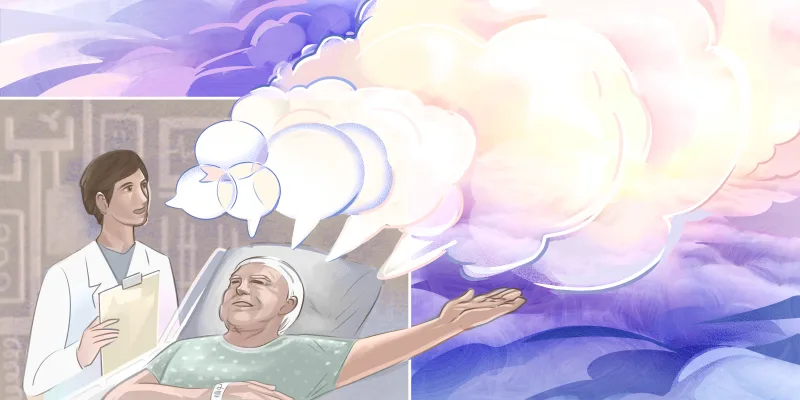 Recently, as I sipped my coffee during a weekend off, I felt the urge to put my thoughts on paper. I am a family medicine doctor, and my husband is a nurse anesthetist. My sister is a hospital nurse. I have elderly grandparents and family members with significant health co-morbidities. I have vulnerable friends and colleagues, many of whom are in the medical field. I also have asthma and a two-year-old daughter. I am like many of you: worried about the health and safety of myself, my family, and my patients. A few hours after the governor of Florida mandated all elective surgeries canceled, my husband lost his job. This all mere hours after we signed a contract to build a house. Given that I work in healthcare, I will likely increase the amount I work out of necessity for my family and my patients. This will — of course — increase my risk and exposure to illness, particularly COVID-19. I have a robust life with many goals and aspirations, and some of those are on a timeline. I am just like so many of you.
Recently, as I sipped my coffee during a weekend off, I felt the urge to put my thoughts on paper. I am a family medicine doctor, and my husband is a nurse anesthetist. My sister is a hospital nurse. I have elderly grandparents and family members with significant health co-morbidities. I have vulnerable friends and colleagues, many of whom are in the medical field. I also have asthma and a two-year-old daughter. I am like many of you: worried about the health and safety of myself, my family, and my patients. A few hours after the governor of Florida mandated all elective surgeries canceled, my husband lost his job. This all mere hours after we signed a contract to build a house. Given that I work in healthcare, I will likely increase the amount I work out of necessity for my family and my patients. This will — of course — increase my risk and exposure to illness, particularly COVID-19. I have a robust life with many goals and aspirations, and some of those are on a timeline. I am just like so many of you.
Many of us both in and out of health care are like emotional sponges; we take in and feel our surroundings. During this time, I have felt stressed; I have experienced fear and worry. So I reached out to my mindfulness coach to discuss how I was feeling. Since then, even with everything continuing to unfold, I feel more grounded. How, you ask, can I achieve this grounding when the losses are already so high, and there’s so much more to lose?
First, I exercised my awareness and named how I felt: scared, uncertain, worried, anxious, sad, angry. Bringing these feelings to the surface was extremely helpful. Then I asked some important questions: Am I prepared and using prevention to the best of my ability? Am I washing my hands, using good hygiene, donning appropriate PPE, distancing socially, checking in with myself and family, following the CDC and WHO guidelines? I decided that since I was doing all these things that my sense of unsettled uncertainty was not serving me, and I needed to LET IT GO. Letting go of this anxiety helps in many ways, including increasing the strength of the immune system. Check in with yourself; ask: how am I feeling? If you are experiencing an unpleasant emotion, including panic, go through a personal checklist and make sure your basic needs are met:
- When was the last time I drank water? Go drink some water.
- When was the last time I ate something? Go eat, preferably something nutritious.
- When was the last time I used the restroom? Go to the bathroom and wash your hands. Hand-washing is therapeutic in many ways.
- How do I feel? If cold, warm up. If hot, check your temperature and/or cool down.
- How much sleep have I had? Take a nap or call in help and sleep when you get home.
- How am I breathing? Take 10 seconds in a safe space and take deep breaths — you can do this with your mask — and make your exhale longer than your inhale.
- Have I checked in with a partner? Do it. Show your love in some way.
- Have I done anything for self-care today? Shower, shave, brush your teeth, even for 10 minutes.
- Do I have shelter? If you don’t, reach out for help to your family, friends, or healthcare providers.
- Have I been outside? Step outside. Visit your backyard, porch, balcony, or area outside the hospital if you are staff.
When we lack any of these needs, we may even feel unwell. Reach out for help. Once you have met your basic needs, check in again, and see how you feel, reassess yourself. You will likely feel much better.
When my husband got the call about losing his job, we drifted into catastrophizing and thinking of all the worst-case scenarios. As clinicians, we can tend to go in that direction because we want to anticipate and prepare for the worst. We should be informed and prepared, but also, we must be aware that our brains — especially the amygdala — can lead us on a wild goose chase down the path of fear, and this may not beneficially serve us or others. It could even worsen the situation. My husband and I reminded ourselves that we are in the present, and we went through our checklist: We don’t know what the future holds, but right now we have food, we have shelter, we are currently meeting our basic needs, and we have each other. Uncertainty and lack of control are anxiety-provoking and can lead to fear and worry. All these feelings are normal and shared by our collective community. We are all in this together. I know how you feel because I feel it too. As clinicians, we will not abandon you, and we need to not abandon ourselves.
As I write this, the sun is still shining, the birds are singing, the flowers are blooming, the pollen is in the air, the wind is blowing, the trees are rooted, and the seasons are changing. Despite all that is going on, the Earth is still turning, and it will continue to do so. Let it provide you with a sense of normalcy.
As clinicians, we must put ourselves first when at work. This is not selfish but necessary. What I mean is give yourself time to appropriately and correctly put on the best PPE that is available to you, repeating a mantra like “I have time.” If PPE and preventive practices are not correctly performed because you are rushing to that patient and you get ill, it is all in vain. We need to protect ourselves so we can protect many others. If you get sick or even contract it without showing signs of illness, you could get many others sick, including family and friends. Protect yourself. You might be thinking, “What do you mean I have time? I have no time for myself at work. As soon as I discharge a patient, I get a new transfer. My ICU step-down unit is now functioning as an ICU extension unit.” I do understand, and as a resident, I often feel this way too. I have learned that taking care of myself must be a priority. I must hydrate, eat, use the restroom, use good hygiene, and don PPE appropriately. I believe we can take care of ourselves and work efficiently. I worked with an awesome ICU doctor, who said during codes she always gave herself 10 seconds to think. She stood by the patient’s side, touching their leg and gave herself 10 seconds. This gave her a moment to think, center herself, and act with a clear mind. This allowed her to make the best decisions for the patient. If an ICU doctor can take these 10 seconds, then so can we.
What I have learned is that my times of greatest stress have led to my greatest times of personal growth. These suggestions are not a cure-all to the stress you may experience, not even for me. I may experience stress as soon as I finish writing this, but my commitments to myself, my family, and my patients are that I will continue to ground myself and be present over and over again, just as I hope you do too. I am channeling wellness vibes and positive intentions to you. Stay grounded, friends!
Heather Sharp a senior resident physician at Ascension St. Vincent's Family Medicine Residency Program.
Illustration by April Brust
Click here to see more perspectives on COVID-19 from the Doximity network.
Click here for up-to-date news about COVID-19 on Doximity.





